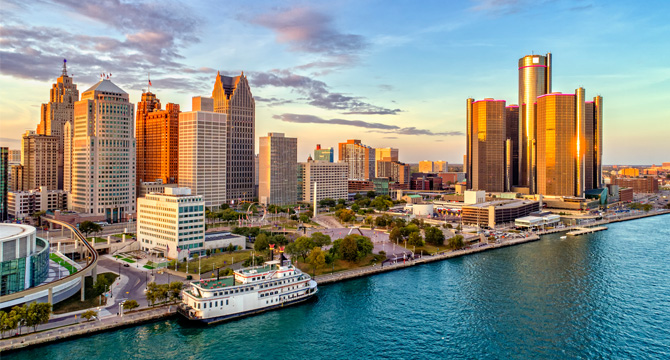Why Detroit and Silicon Valley Should Combine Their Autonomous Vehicle Pursuits

From Blade Runner to the Jetsons, autonomous vehicles have been a mainstay in movies set in the future. With Detroit and Silicon Valley leading the charge, these depictions will soon be reality in the not too distant future. While the Big Three in Detroit and the tech giants on the West Coast started out as rivals, that relationship has changed in recent years into more of a partnership as the geographic divide has started to blur. In 2016, General Motors acquired Cruise Automation, a San Francisco-based developer of autonomous vehicle technology for over $1 billion. In September 2018, the Renault-Nissan-Mitsubishi alliance announced that it would be incorporating Google’s Android operating system into future models. This is the first such partnership between an automobile OEM and Silicon Valley on infotainment/OS systems and represents the shift from competitors to collaborators.
In fact, major decision makers in Michigan have acknowledged the shift. At a New York Times Talk held in Detroit on Tuesday October 4, Sherif Marakby, President and CEO of Ford Autonomous Vehicles, stated “I’m not sure it needs to be a debate. The success of autonomous vehicles really needs both (places). You really need both to make this work.” Indeed, Marakby’s words could not ring more true. Detroit bring decades of manufacturing, engineering and design knowledge to the table while Silicon Valley provides the brightest software developers. It would behoove Silicon Valley to invest in operations in the Motor City due to the latter’s ample testing sites.
Testing sites such as the American Center for Mobility in Ypsilanti just west Detroit is a prime location for the old guard and the new guard to join forces. It provides a 2.5-mile highway loop and 700-foot curved tunnel complete with four-season testing conditions for autonomous vehicles before they hit public roads.
Aside from its rich automotive history and its testing sites, Detroit offers Silicon Valley the opportunity to invest in a reviving economy. Only five years removed from filing for bankruptcy protection, Detroit has become a hotbed for innovation and entrepreneurship in part due to increased investment from private donors and large corporations such as Quicken Loans and Google. Detroit’s administration has partners with the Detroit Economic Growth Corporation and other city agencies to launch the Motor City Match grant program which provides $500,000 in funding every quarter to new or expanding startups in Detroit.
As shown by the increasing number of technology companies setting up shop in Detroit, people are taking notice that Detroit is an increasingly attractive location to live and launch a company. According to the 2017 Michigan Venture Capital Association Entrepreneurial Study, the number of Detroit-based startup companies has increased 50% over the last three years.
Detroit and Silicon Valley combining forces to establish Detroit as America’s autonomous vehicle hub would be a fitting way to revitalize Detroit’s economy while paying homage to its roots.